The Enduring Impact of MLK Leadership Award Winners
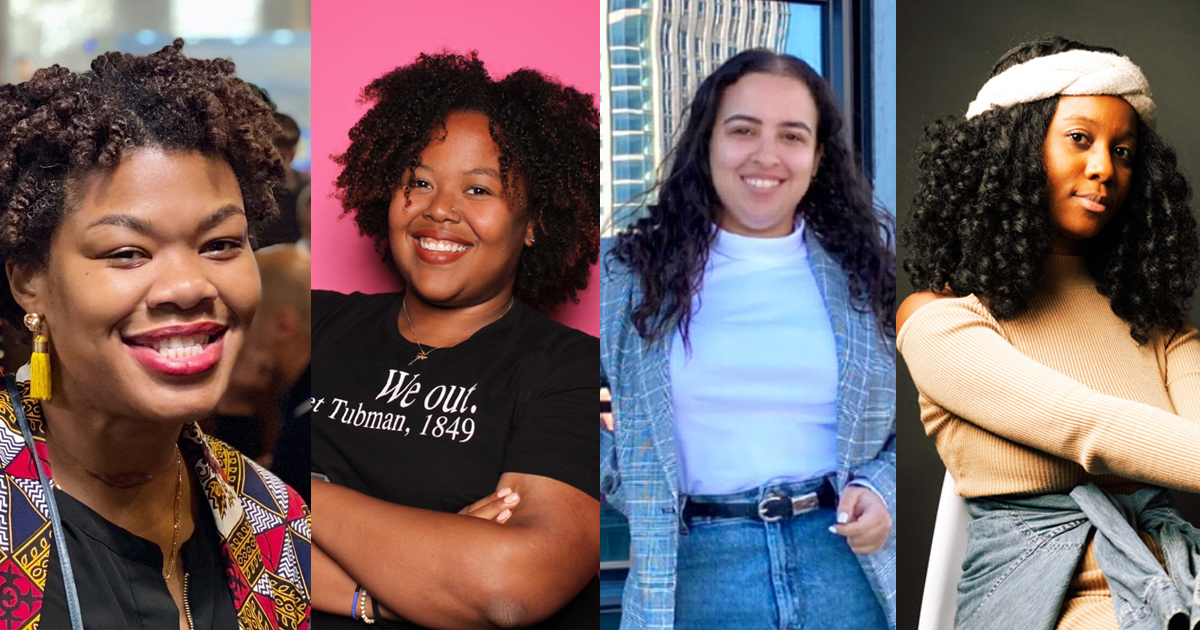
For nearly 20 years, Babson College has been honoring members of the community, including students, faculty, staff, groups, and organizations, who reflect Dr. Martin Luther King Jr.’s principles and ideals.
The Martin Luther King Jr. Leadership Award winners represent those who go above and beyond to better the College community and the world around it. Ahead of the 18th annual Martin Luther King Jr. Legacy Day, we caught up with a handful of Babson alumni who have received the MLK Leadership Award as they reflect on their impact and offer advice on fulfilling Dr. King’s vision.
Flora Ekpe-Idang MBA’17
2017 MLK Leadership Award recipient
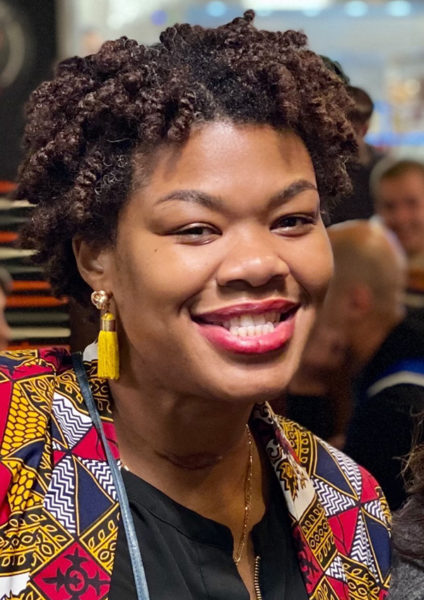 In our ongoing pursuit of social justice, how have you honored—and how will you continue to honor—Dr. King’s vision through your life and work?
In our ongoing pursuit of social justice, how have you honored—and how will you continue to honor—Dr. King’s vision through your life and work?
“As an entrepreneur and a multicultural marketing strategist, I’m fortunate that I get the opportunity to express my passions centered on supporting and uplifting Black consumers, communities, and businesses in my daily pursuit of social justice. Whether through my multicultural doll and book company, Corage Dolls, that encourages girls of color to be unstoppable or through my job centered on building meaningful connections with Black consumers, it’s important to live out King’s vision in everything I do.”
What can we do individually or collectively to help create a sense of belonging for everyone in the community?
“Take time to deeply and genuinely understand the root issues of systemic racism and the ongoing barriers that exist to true equality. By doing so, you’ll be able to design sustainable solutions leading with the most underserved thus creating a sense of belonging for everyone.”
Taelyr Roberts ’15
2015 MLK Leadership Award recipient
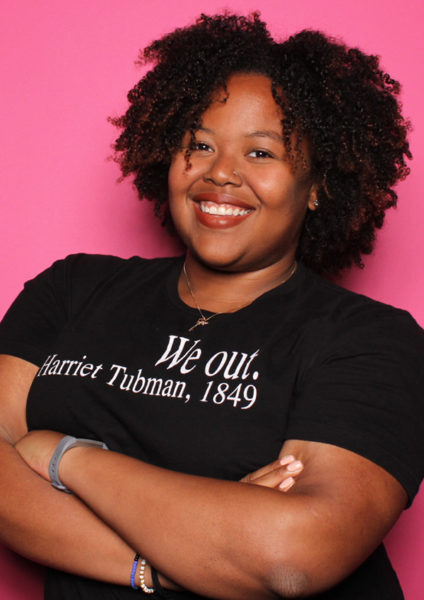 In our ongoing pursuit of social justice, how have you honored—and how will you continue to honor—Dr. King’s vision through your life and work?
In our ongoing pursuit of social justice, how have you honored—and how will you continue to honor—Dr. King’s vision through your life and work?
“I think that a lot of our issues as a society stem from access and opportunity, so I work to create both through my business—Hippie Adjacent—by regularly donating to civil rights organizations and on a personal level as a mentor and consultant for Black and Brown people launching businesses and a mentor for high school-aged entrepreneurs.”
What can we do individually or collectively to help create a sense of belonging for everyone in the community?
“I don’t actually think belonging should be the goal. I think understanding should be. I first heard Brené Brown say, ‘It’s hard to hate up close. Move in.’ And, I think that moving in is all of our responsibility. The things we do individually tend to cause a ripple effect in the world around us, so if we take the time to more thoroughly understand people before making assumptions about what they are or aren’t, it creates the opportunity for everyone to have a seat at the table.”
Nitiya Walker ’14
2014 MLK Leadership Award recipient
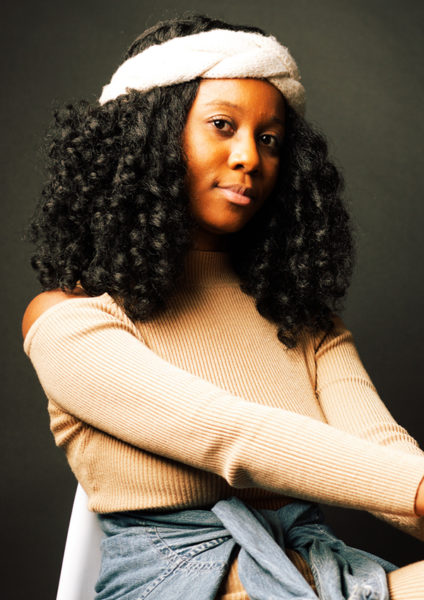 In our ongoing pursuit of social justice, how have you honored—and how will you continue to honor—Dr. King’s vision through your life and work?
In our ongoing pursuit of social justice, how have you honored—and how will you continue to honor—Dr. King’s vision through your life and work?
“It was a pleasure to be honored with the MLK Leadership Award in 2014. Since then, I continue to honor the legacy of social justice through the Seeds of Fortune Inc. scholars program—specifically our Healthcare and Criminal Justice Opportunity grant in the memory of Breonna Taylor. We desire to support our scholars’ career development and allow them to gain internship experience in health, criminal justice, foundations, and politics to ensure the next generation can combat racial, economic, and social justice.
“Due to economic limitations, many students lack access to traditional internships, which may require quitting a job or moving to another state. This current system perpetuates racial and economic disparities by positioning internships as a privilege for some students, rather than as a critical steppingstone for all as they move from college to professional employment.”
What can we do individually or collectively to help create a sense of belonging for everyone in the community?
“As a collective and individual, people can take the time to beware of the privileges and biases they have in order to make an intentional effort to not only open the doors of opportunities to people of color but also make them feel welcomed in spaces that they have earned the right to be in.”
READ MORE: Planting the Seeds for Financial Empowerment
Zahira Perez ’20
2020 MLK Leadership Award recipient
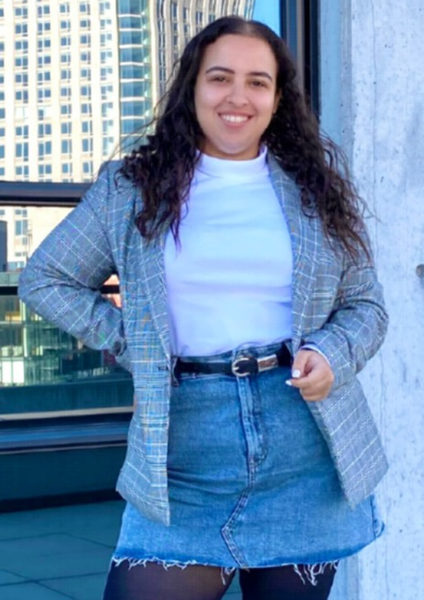 In our ongoing pursuit of social justice, how have you honored—and how will you continue to honor—Dr. King’s vision through your life and work?
In our ongoing pursuit of social justice, how have you honored—and how will you continue to honor—Dr. King’s vision through your life and work?
“I am on the board of a nonprofit, the People’s Theatre Project, that focuses on creating community activists through art. We serve immigrant communities in New York, from children to seniors. A big part of our work is coming to terms with our identities, specifically recognizing self-hate and taking steps toward minimizing bias. At Accenture, I am making sure to hire Black and/or (LGBTQ) businesses in the employee resource groups I am a part of.”
What can we do individually or collectively to help create a sense of belonging for everyone in the community?
“We need to start with ourselves. Ask yourself honestly whether your actions are discriminatory, whether your advocacy is performative, whether you want to be treated like you treat others. I can tell you I’ve found myself at the wrong end of those answers, I still do, and when I do, I have two choices: I can get defensive or I can make a change. Do your own research, and if someone is being kind enough to inform you, consider compensating them. Lastly and most importantly, listen.”
Posted in Community





